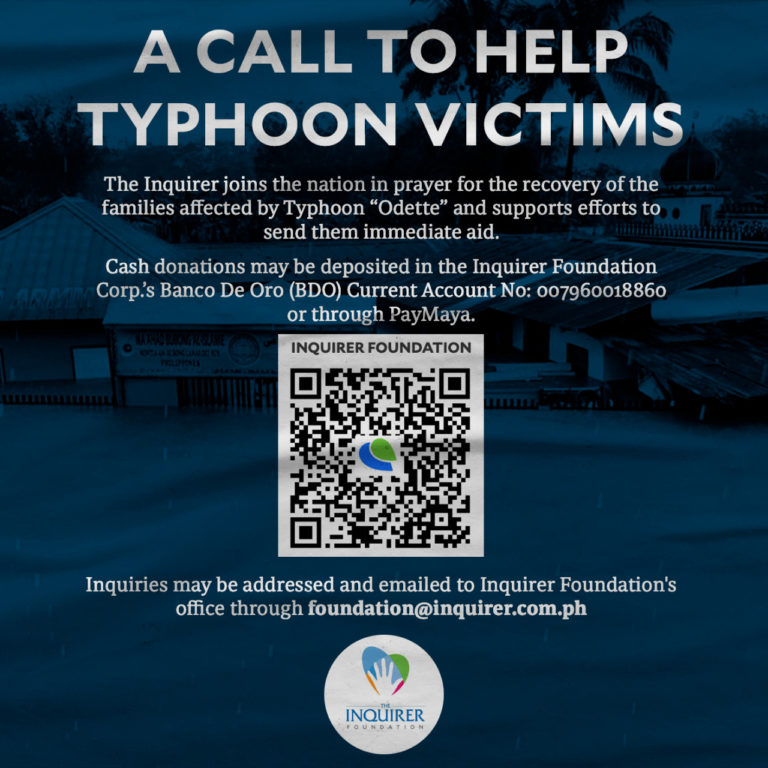Odette and Omicron underscore need for adequate insurance coverage
Written by: Rahul Hora, AXA Philippines CEO
2022 has started completely on the wrong foot, with the nation still reeling from the devastation of typhoon Odette, new cases of COVID-19 now routinely break the 30,000 mark and the daily positivity rate averages around 50%. Just a little over a month ago on December 10, 2021, the DOH reported that nearly half of the hospitals in the country had no new cases of COVID-19. This resurgence should serve as a sobering reminder that our fight is far from over.
Every dark cloud has a silver lining. In this resurgence, we now have strong evidence that the collective measures that we had been taking to control the spread of the virus were actually working. And we can reasonably expect that with a return of vigilance, and cooperation, we can turn that tide again.
Omicron requires greater vigilance
While it is both easy and largely valid to attribute the surges to relaxed lockdown regulations, as well as the false sense of security we were all lulled into, the emergence of the Omicron variant is definitely a major contributor to the COVID-19 resurgence. While initial studies show it is less likely to cause hospitalization than the still present Delta variant, and vaccines still provide good protection against it, it has also proven to be significantly more contagious. As evidenced by how it has supplanted Delta as the most prevalent variant.
Despite the devastation COVID-19 has wrought, contrary to what one might expect, it does not seem to have been the leading cause of death in 2021. As of September of 2021, the leading cause of death in the Philippines remains heart diseases with 91,152 cases or 18.5%. COVID-19 accounted for 50,758 deaths or 10.3% of the total deaths in the country. As much of a health scare as COVID-19 has been, we have faced worse, and continue to do so day after day.
The problems of underinsurance and out-of-pocket health care costs
Something perhaps just as alarming as the body count of COVID-19 has been the actual monetary cost to ordinary Filipinos. For decades, infectious diseases had fallen far out of the list of top causes of death globally due to modern healthcare. According to Centers for Disease Control (CDC) archives, the last time an infectious disease was among the leading causes of death in the US was tuberculosis in 1940, just before the invention of antibiotics.
COVID-19 has necessitated a virtual paradigm shift in healthcare. Protocols designed to stop the spread of the virus such as mandatory PPEs, have significantly jacked up hospitalization costs that were already out of reach of most Filipinos. Even public hospitals have noted that the cost of hospitalization for COVID-19 is well above what the average Filipino can afford.
In recent years, we know that between 2012 and 2020, there was no major improvement in the country’s total annual out-of-pocket (OOP) hospitalization spending. It has hovered around the 50% mark of total health expenses in the last 10 years. For the uninsured, a major health care crisis and the resulting OOP spending can all too easily be followed by financial ruin.
COVID-19 has changed the mindset
COVID-19 has made us more aware that a reality of being human is that we will all get sick, but that awareness should translate to action. Fortunately, data we have obtained from a study by NielsenIQ called: “Winning in the Insurance Category during COVID-19” during the pandemic, has shown that Filipinos are now more willing to invest in insurance. In the new normal, fully 98% of Filipinos now see the importance of insurance, with 65% considering it an actual necessity.
As we turn our efforts to powering through the COVID-19 crises especially in the wake of typhoon Odette, insurance should be made a top-of-mind concern. If we do so, the crisis that could be just around the corner does not have to be a poverty- causing one. In COVID-19 as with life, we all have a role to play in protecting what matters: our lives, our health, our productivity, our country, our world. To do this, if it is within our financial means, we need to make it a priority to no longer be underinsured.

“In COVID-19 as with life, we all have a role to play in protecting what matters: our lives, our health, our productivity, our country, our world.” – AXA Philippines CEO Rahul Hora
Protecting everything that matters from every possible risk
Being underinsured means that a crisis such as death, major illness, accident or disaster causes a drastic change in the standard of living for those who remain. Assets such as homes, cars, or businesses also matter. For most people who are lucky enough to have such things, these assets are irreplaceable, and are often the product of many years of hard work, and sacrifice.
Typhoon Odette has served us yet another grim notice that natural disasters are an ever looming and very real threat to life, health, income and property. We always need to prepare for them, as they can happen anytime, even in rapid succession.
Yet Odette is hardly a freak occurrence, according to the Asian Disaster Reduction Center (ADRC), we are hit by an average of 20 typhoons a year, 5 out of which prove to be destructive. The next super typhoon might happen two years from now, or it might happen next Tuesday. But what we do know with virtually absolute certainty, is that it WILL happen. We also have the unfortunate distinction of being in the Pacific Ring of Fire, a powder keg of seismic activity.
To lose a home to fire while still paying a mortgage, to have a car ruined or even swept away by a flood, or to lose a business as so many have experienced during COVID-19 and Odette, are all catastrophic events. But with insurance, none of these have to be drastically life-altering.
To learn how much insurance an individual needs requires a thorough, professionally done needs assessment and financial planning. Needs assessment should be done at key points in life as we age, get married, have kids, invest in a business, acquire property or even just buy a car. As a general rule, if it is in any kind of risk, and can’t be easily replaced, then it should be insured.
As we continue to battle COVID-19, and brace for the natural calamities that we know are coming, acquiring sufficient insurance for ourselves and our loved ones is the best way to assure yourself and your family that even if the future brings adversity, the family will not only endure, but continue to thrive.
How insurance has evolved in the new normal
At AXA, we recognized two things during the pandemic. The first was that for safety reasons we could no longer rely on just face-to-face interactions. The second was that Filipinos generally lack information or understanding of insurance. The only insurance many of them know of is life insurance, and that one has to die in order for people to benefit from it.11
To address these two concerns, we have been significantly augmenting both our digital presence and our digital capabilities. Since smartphone penetration in the Philippines is very high at 74.1% of the total population,12 We decided to engage Filipinos in the digital space for the following reasons: it is where they consume content; it is their communication space; it offers Filipinos comfort, convenience, and safety—plus they know to navigate it very well.
Emma by AXA PH is our award-winning insurance app, where our customers can get advice on what plans might be good for them. Through Emma, they can make purchases, pay premiums, review their benefits, access health services such as telemedicine, contact emergency services, and even file claims. Emma is widely regarded as the best of its kind in the country. It is the start of the solution to the problem of underinsurance. To end underinsurance, and ultimately to end the catastrophic consequences that adequate insurance can help avert, is something Filipinos need to resolve to do.
ADVT
Read more Business stories:
SMDC’s Style Residences: A real estate investment that will always be on-trend
UnionBank Private Banking recognized by Asian Private Banker as the Best Domestic Private Bank in PH
PH1 World and PRO-FRIENDS develop innovative family and safety-centric condo in Imus, Cavite















